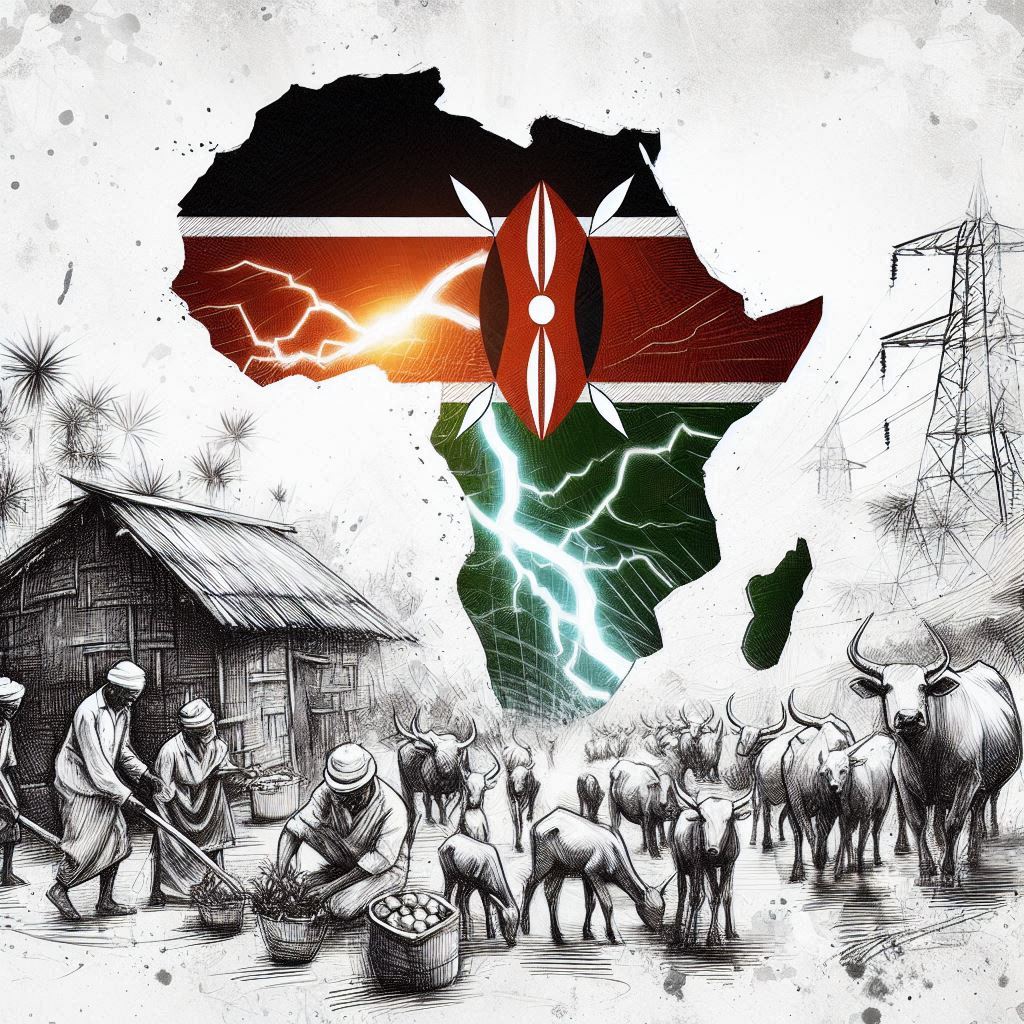Agriculture has always been the foundation of human civilization, providing sustenance, fostering innovation, and building economies. For Global Africa—a term embracing the African continent and its diaspora—agriculture represents not only a vital economic sector but also a pathway to empowerment, equity, and sustainability. The “Modern Land Grant Shared Education Platform (SEP)” is a transformative initiative revisiting the principles of the Land Grant College System to drive agricultural education, technological innovation, and economic growth in Global Africa.
Revisiting the Land Grant College System
The Land Grant College System, established in the United States through the Morrill Act of 1862 and expanded with subsequent legislation, was a groundbreaking model that democratized higher education. Focused on agriculture, science, and engineering, the system created accessible learning institutions that emphasized practical education for farmers and industrial workers, fueling America’s agricultural and industrial revolutions.
Today, the challenges of food security, climate change, and equitable development in Global Africa echo the conditions that inspired the Land Grant System. However, the 21st century demands a modernized approach—one that integrates emerging technologies, fosters global collaboration, and prioritizes sustainable development.
The Modern Land Grant Shared Education Platform (SEP)
The SEP is designed to empower farmers and agricultural communities by adapting the Land Grant philosophy to meet the unique needs of Global Africa. This platform combines traditional agricultural education with cutting-edge technologies and a focus on global markets, addressing both local and international demands. Key elements include:
n the global perception of Africa. Once viewed primarily through the lens of poverty, disease, and conflict, the continent is now increasingly recognized for its vast potential and untapped opportunities. At the forefront of this transformation is the emergence of what is being heralded as Global Africa’s Brain Bank—a dynamic network of talent, innovation, and entrepreneurship that is driving progress and prosperity across the continent.
Historically, Africa has been plagued by a brain drain, with many of its brightest minds seeking opportunities abroad due to limited prospects at home. However, in recent years, there has been a noticeable reversal of this trend, as increasing numbers of skilled professionals, entrepreneurs, and innovators are choosing to return to Africa to contribute to its development. This influx of talent has given rise to a vibrant ecosystem of creativity and innovation, fueled by a deep commitment to driving positive change.
At the heart of this transformation is the concept of the Brain Bank—a metaphorical repository of knowledge, expertise, and ingenuity that is being leveraged to address some of Africa’s most pressing challenges. From healthcare and education to agriculture and technology, the Brain Bank is powering innovation and driving progress in every sector of the economy.
One of the key drivers behind the rise of the Brain Bank is the growing recognition of Africa’s potential as a hub for innovation and entrepreneurship. With a young and rapidly growing population, abundant natural resources, and an increasingly educated workforce, Africa is poised to become a global leader in the 21st century economy. The Brain Bank is harnessing this potential by providing a platform for collaboration, mentorship, and knowledge-sharing among Africa’s brightest minds.
Another factor driving the growth of the Brain Bank is the increasing availability of funding and support for African entrepreneurs and innovators. Governments, international organizations, and private investors are recognizing the importance of supporting homegrown talent and are providing resources and funding to help entrepreneurs turn their ideas into reality. This influx of investment is fueling the growth of startups and small businesses across the continent, creating jobs, driving economic growth, and empowering communities.
But perhaps the most significant impact of the Brain Bank is its role in changing perceptions of Africa both within the continent and globally. By showcasing the talent, creativity, and innovation that exist within Africa, the Brain Bank is challenging stereotypes and reshaping the narrative around the continent. It is demonstrating that Africa is not a place of despair and hopelessness, but rather a land of opportunity and potential.
As the Brain Bank continues to grow and evolve, its impact will only become more profound. By unlocking Africa’s potential and harnessing the power of its brightest minds, the Brain Bank is driving positive change and shaping a brighter future for the continent and its people. From healthcare and education to agriculture and technology, the Brain Bank is paving the way for a new era of prosperity and progress in Africa.
- Education and Training: The SEP offers hands-on learning opportunities for farmers, providing practical knowledge in sustainable farming techniques, resource management, and innovative agricultural practices. Training programs are tailored to the diverse ecosystems across Global Africa, ensuring relevance and impact.
- Technology Integration: Leveraging digital tools like precision agriculture, AI, and blockchain, the SEP equips farmers with the resources to optimize yields, manage supply chains, and access global markets. These technologies bridge the gap between small-scale farming and industrial-scale operations, fostering competitiveness.
- Collaborative Research: In partnership with universities, research centers, and international organizations, the SEP promotes research on crop resilience, climate adaptation, and sustainable farming practices. This collaboration mirrors the research-extension model of Land Grant institutions, ensuring innovations reach the field.
- Access to Markets: The platform connects farmers to the African Continental Free Trade Area (AfCFTA) and global trade networks, enabling them to scale their operations and achieve fair pricing for their produce. SEP integrates with frameworks like the Global Africa Fair Trade Area Alliance (GAFTAA) to promote equitable trade practices.
- Community-Centered Development: By prioritizing underserved and underdeveloped communities, the SEP focuses on reducing inequalities, creating job opportunities, and fostering self-reliance. It aligns with the Mending Goals Initiative (MGI), which addresses social, environmental, and economic disparities.
Advancing Sustainable Equity

Global Africa faces pressing challenges such as food insecurity, climate vulnerability, and rural poverty. The SEP directly addresses these issues by empowering farmers to be agents of change within their communities. By integrating the Sustainable Development Goals (SDGs)—particularly those focused on zero hunger, sustainable agriculture, and climate action—the platform ensures that growth is both inclusive and sustainable.
Moreover, the SEP emphasizes equity by supporting women and youth in agriculture. Recognizing their pivotal roles in food production and community leadership, the platform ensures equal access to resources, training, and opportunities.
A Global Model for Transformation
The Modern Land Grant Shared Education Platform (SEP) is not just a revival of a historical system but an evolution tailored to the modern era. It represents a scalable model that can inspire other regions facing similar challenges. By empowering farmers and fostering sustainable development, the SEP helps to unlock the full potential of Global Africa, paving the way for a future where agriculture is a cornerstone of prosperity and resilience.
As the SEP continues to grow, its impact will resonate far beyond the fields of Global Africa, offering lessons and inspiration to the global community in the shared pursuit of equity, sustainability, and innovation.

How to Set Mending Goals: A Step-by-Step Guide (with Examples)
How to Set Mending Goals: A Step-by-Step Guide (with Examples)

How the Global Economy became weaponized against the worlds original indigenous populations
How the Global Economy became weaponized against the worlds original indigenous populations

Unicorn impact investors: Modeling Work Life Balance for Underserved and Underdeveloped Populations.
Unicorn impact investors: Modeling Work Life Balance for Underserved and Underdeveloped Populations.

